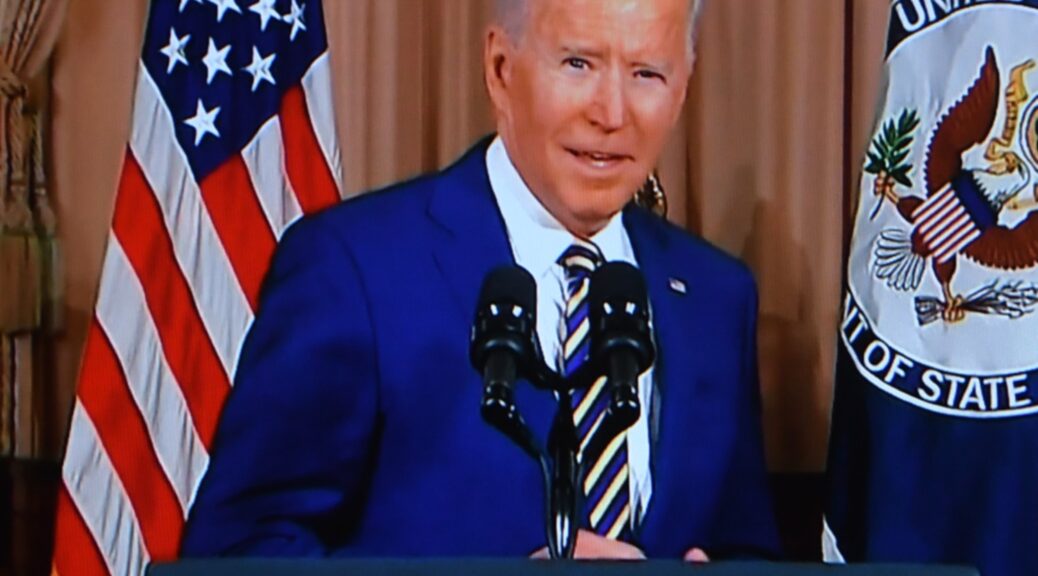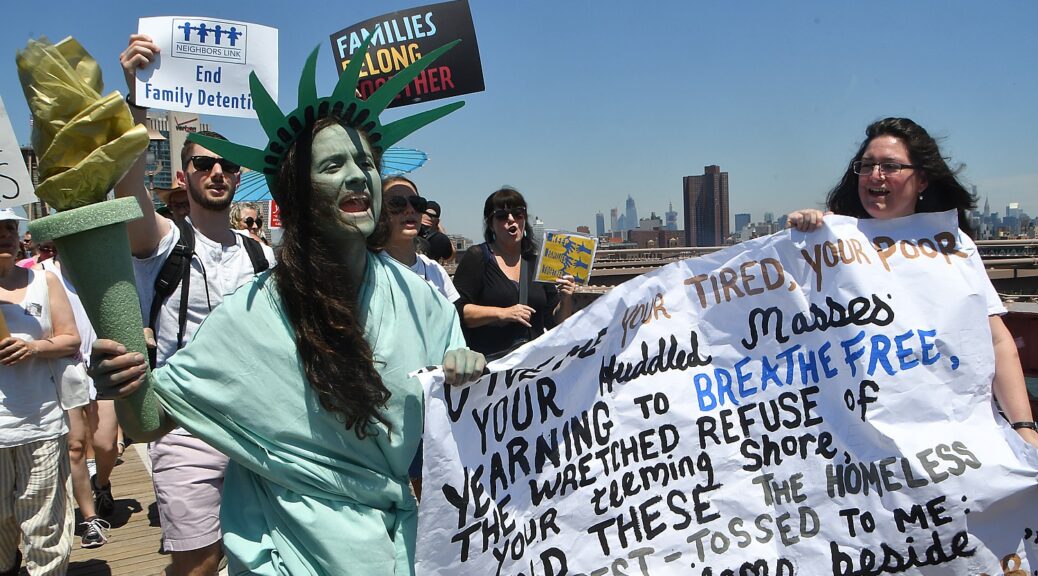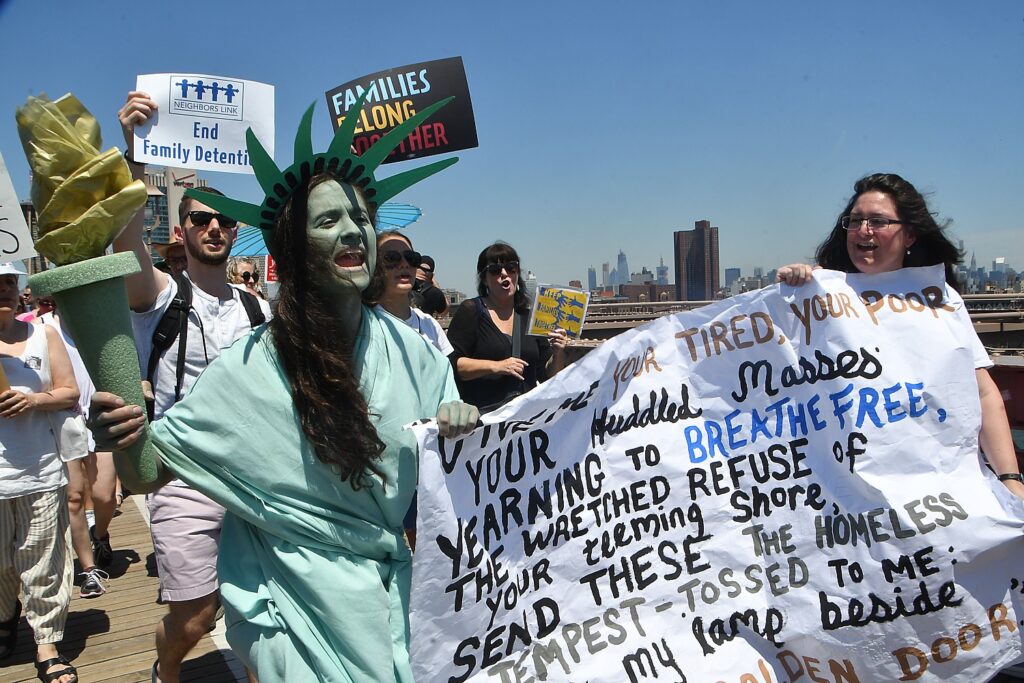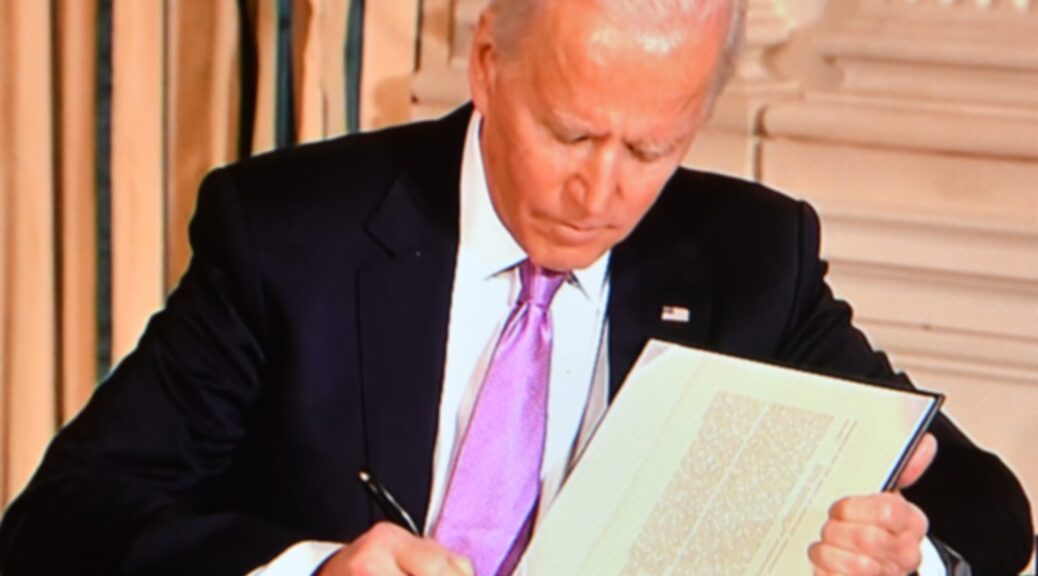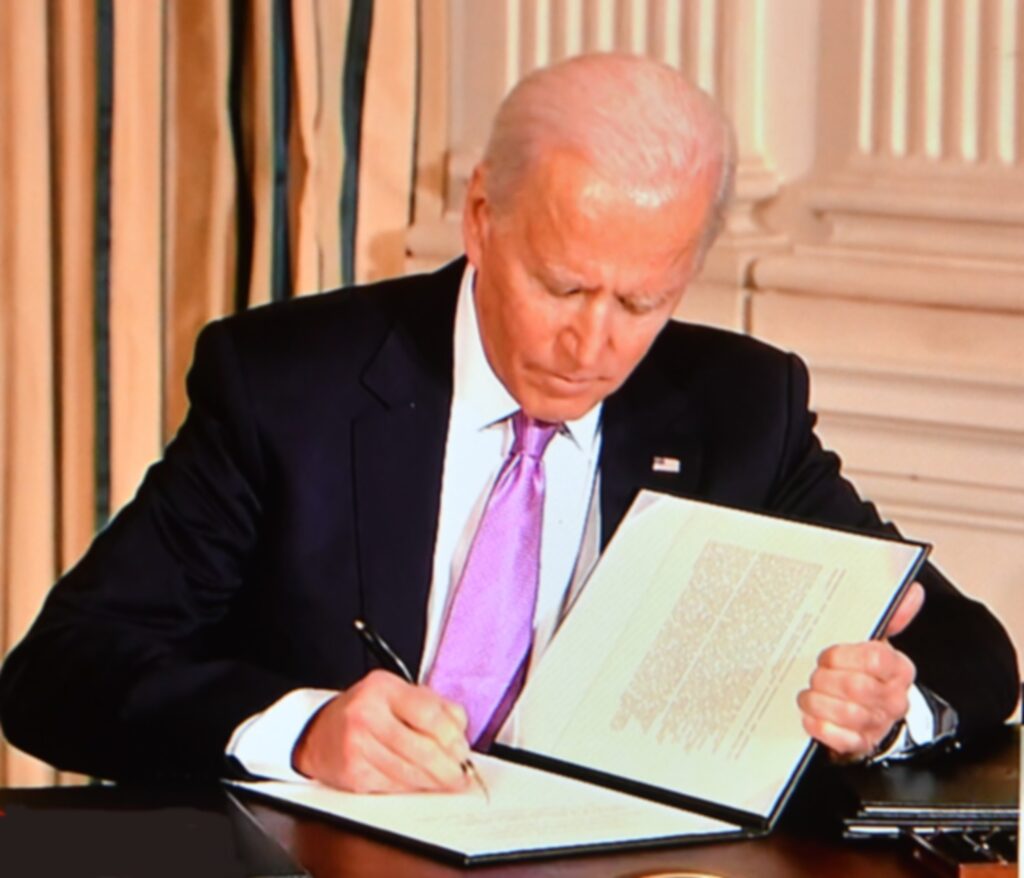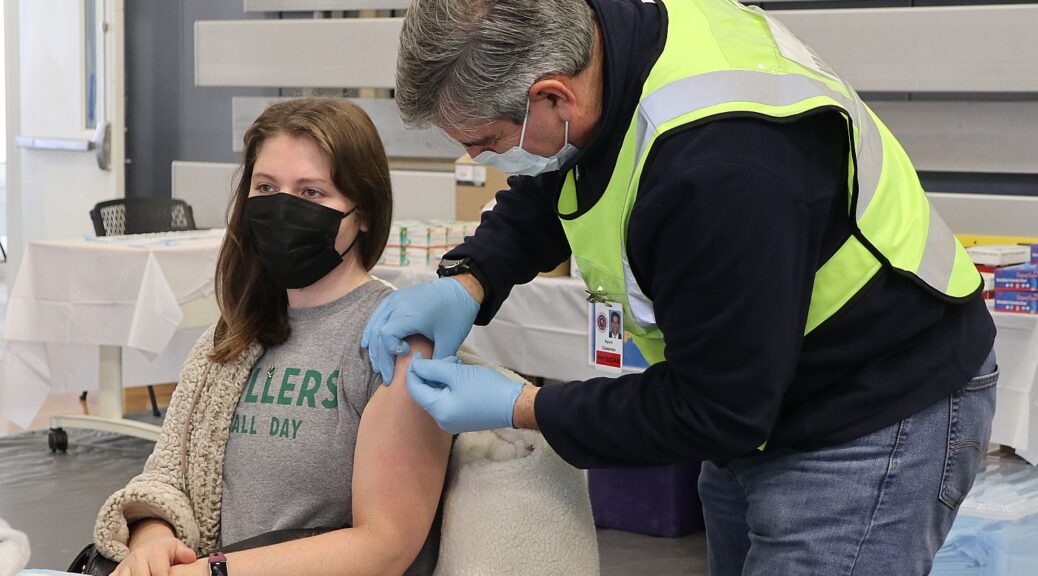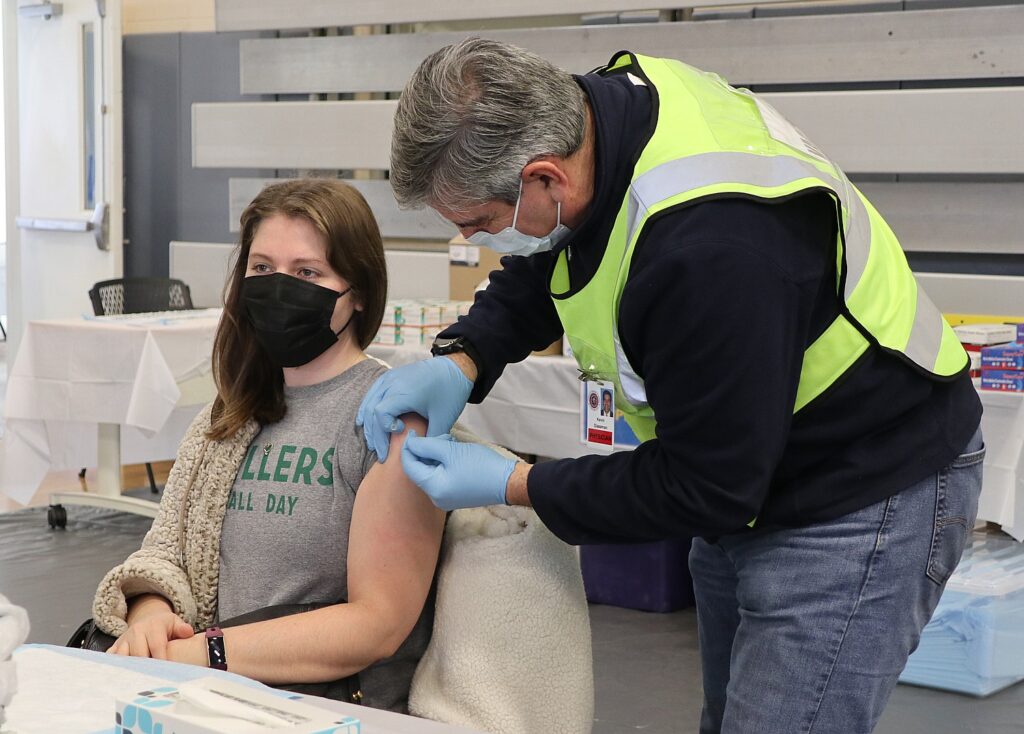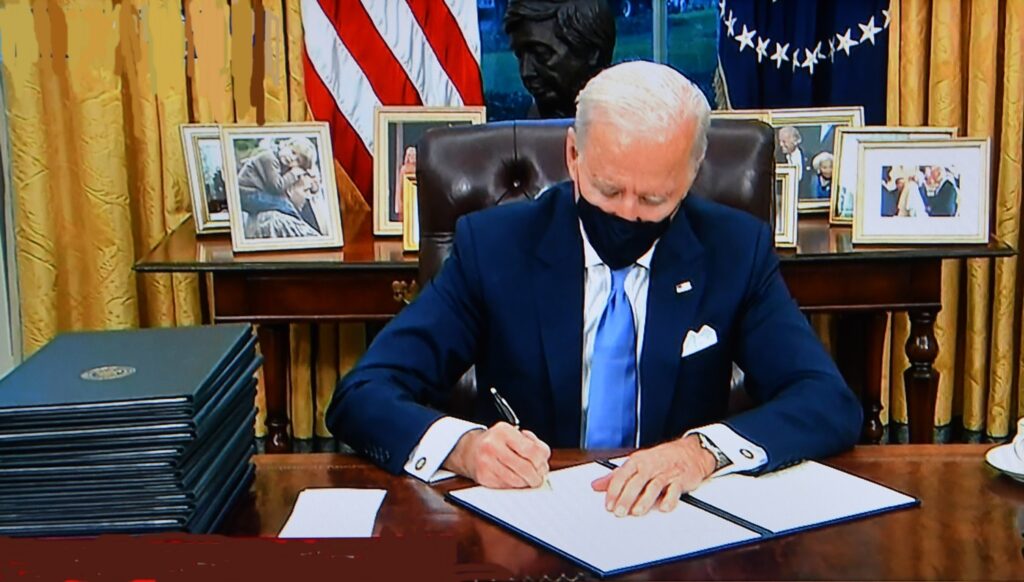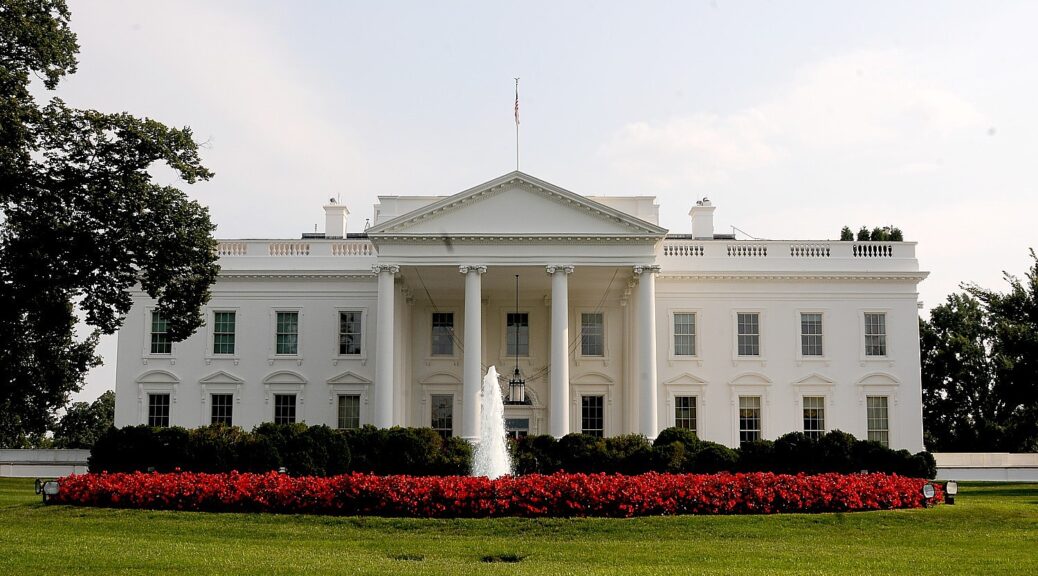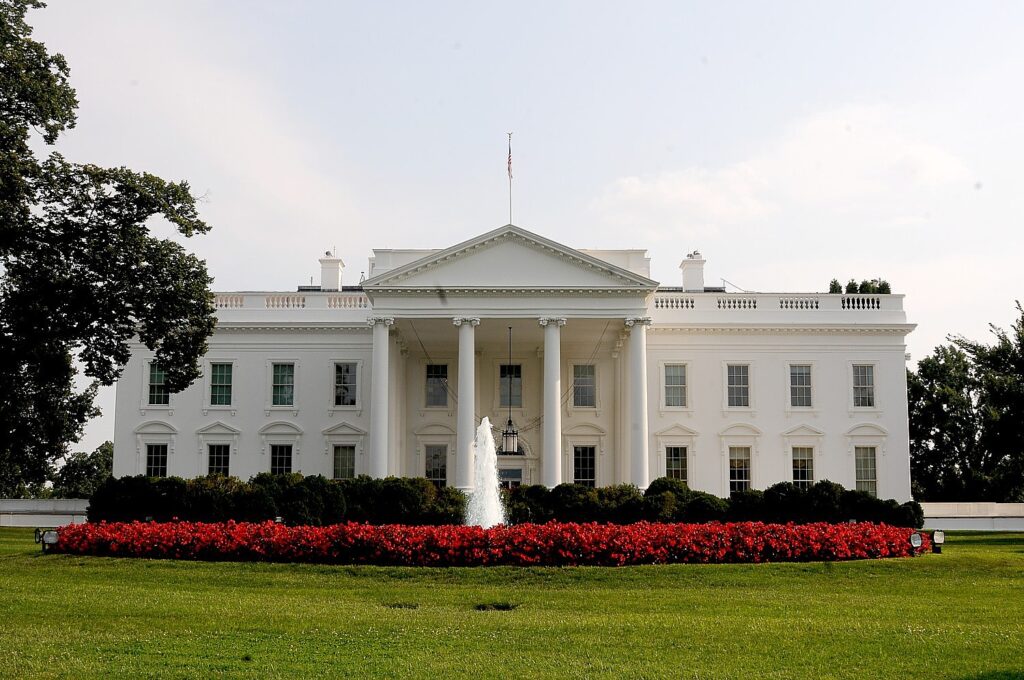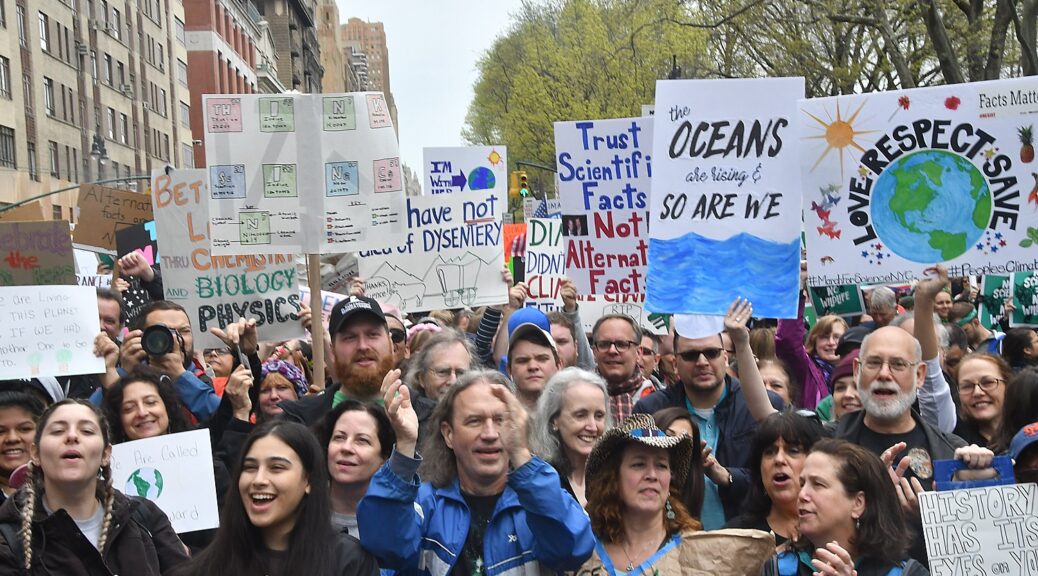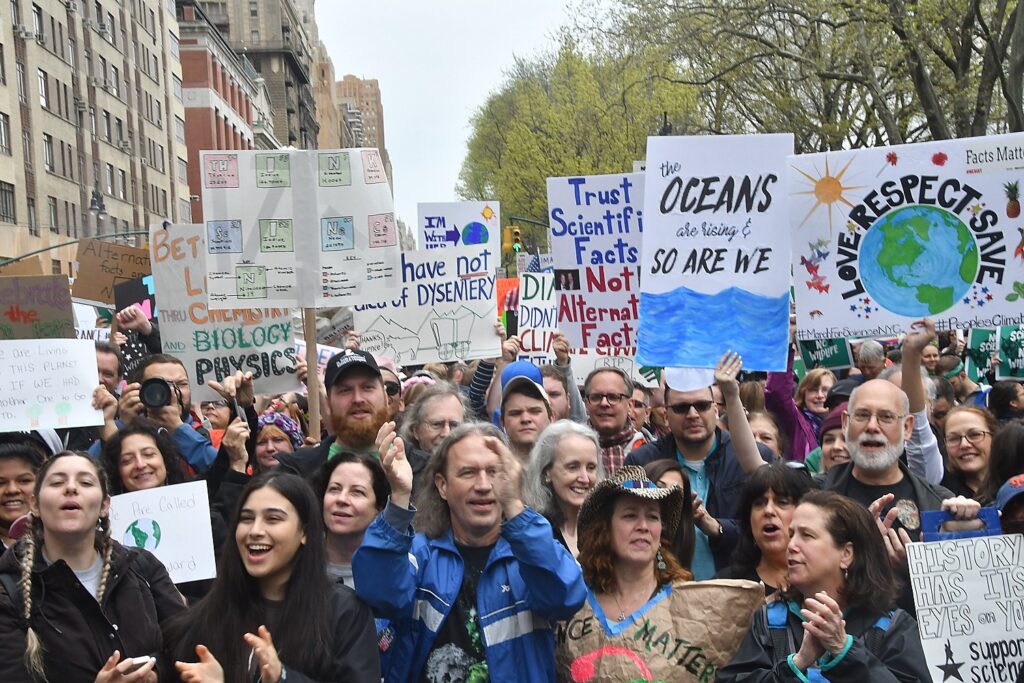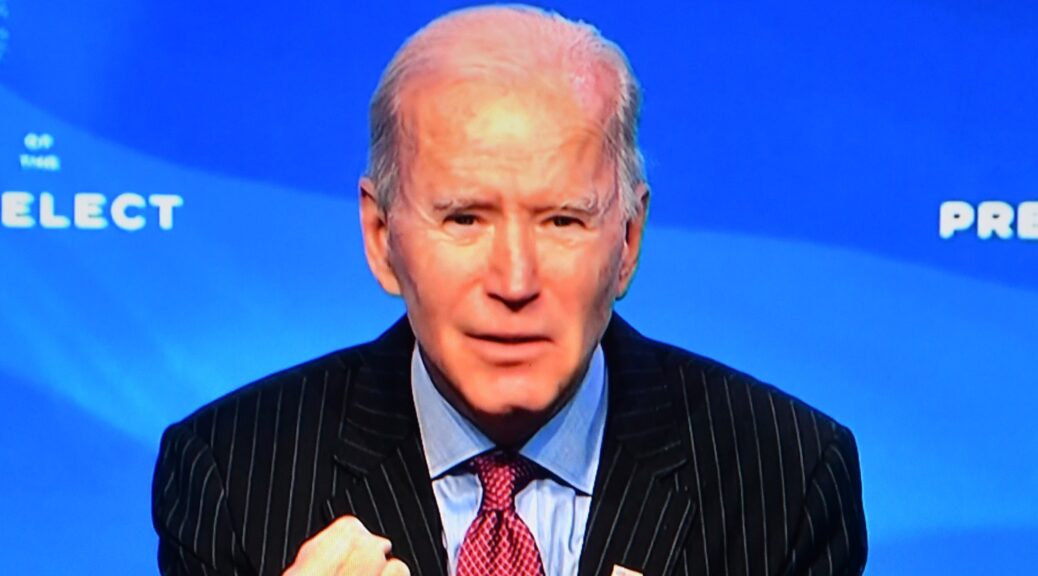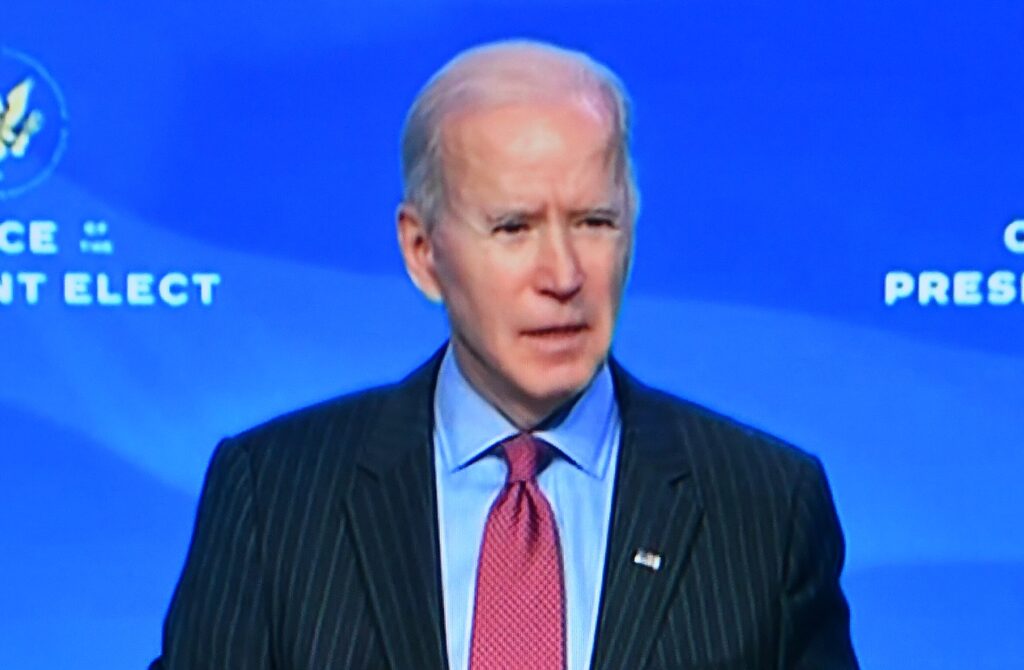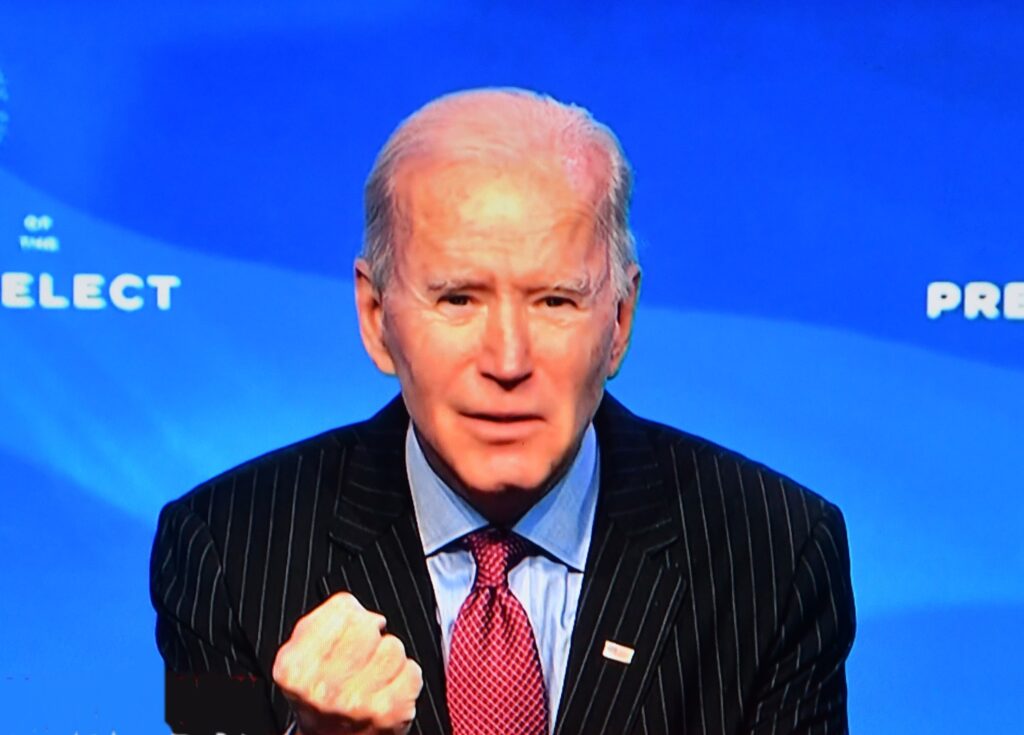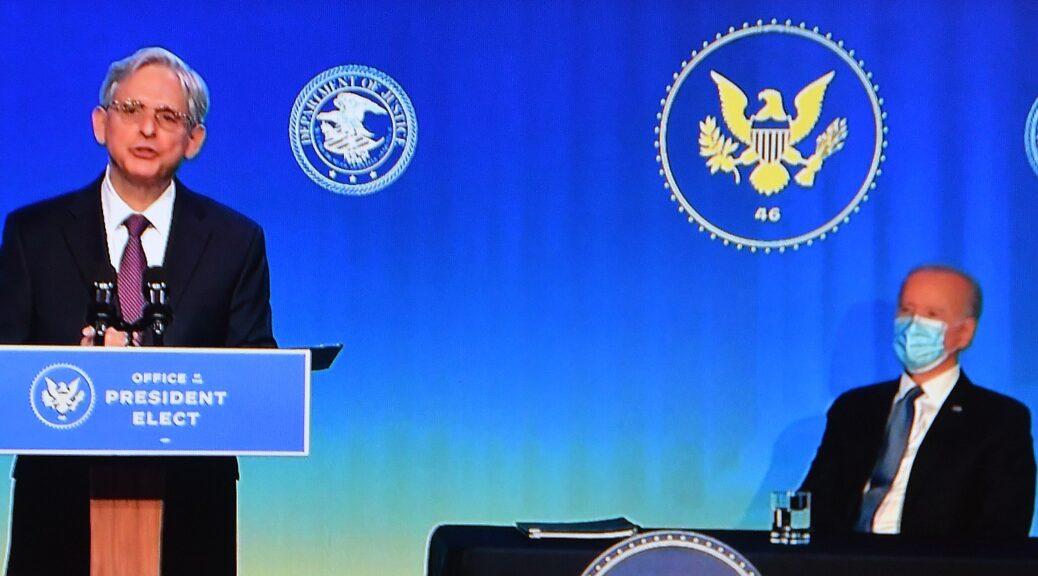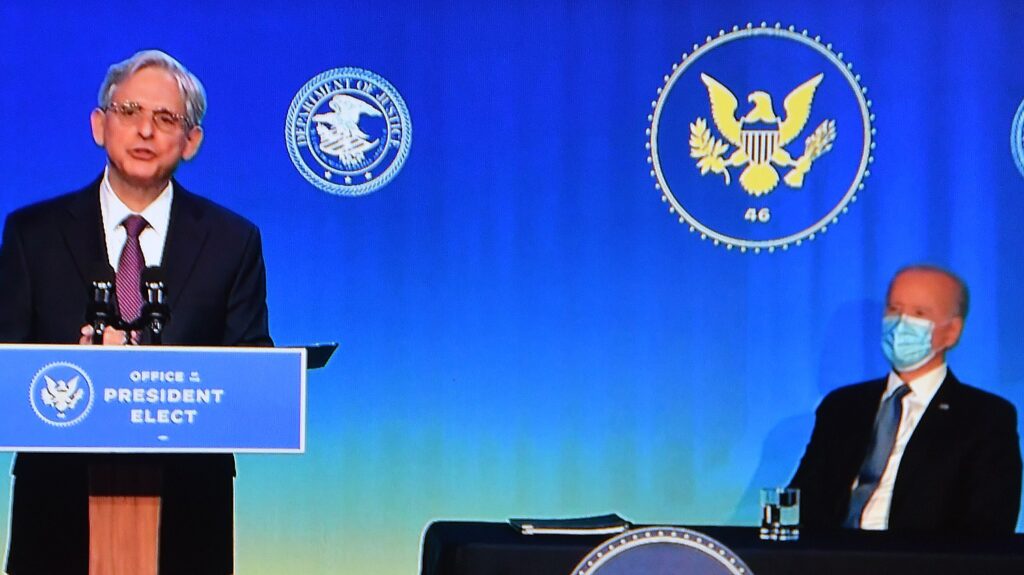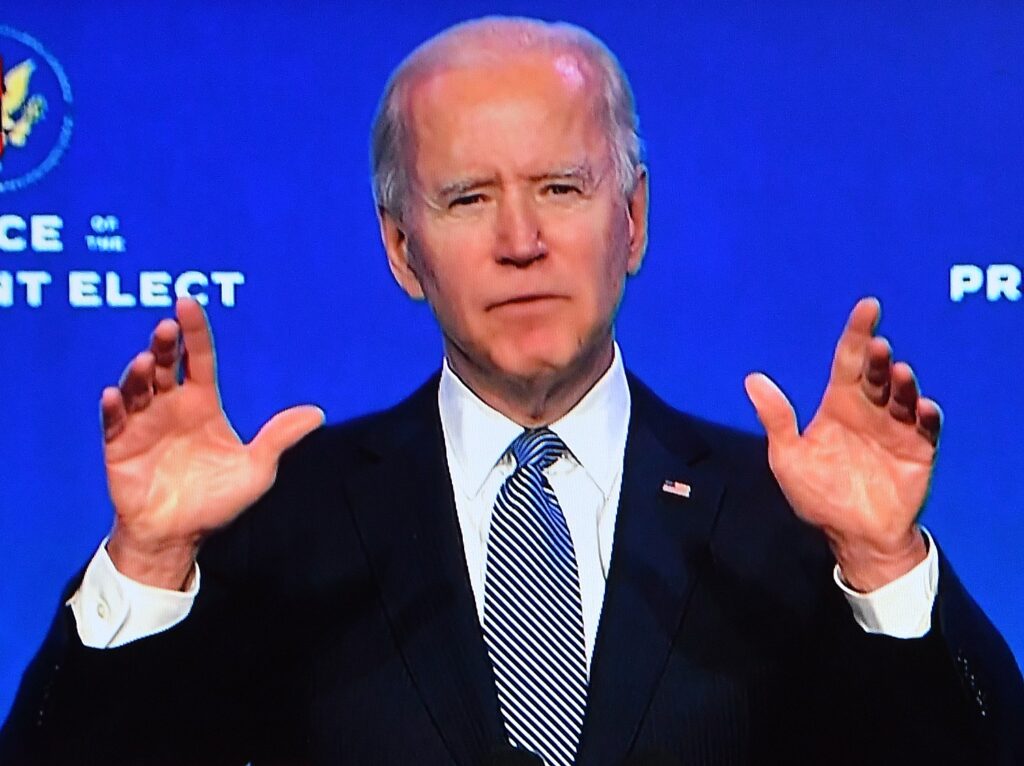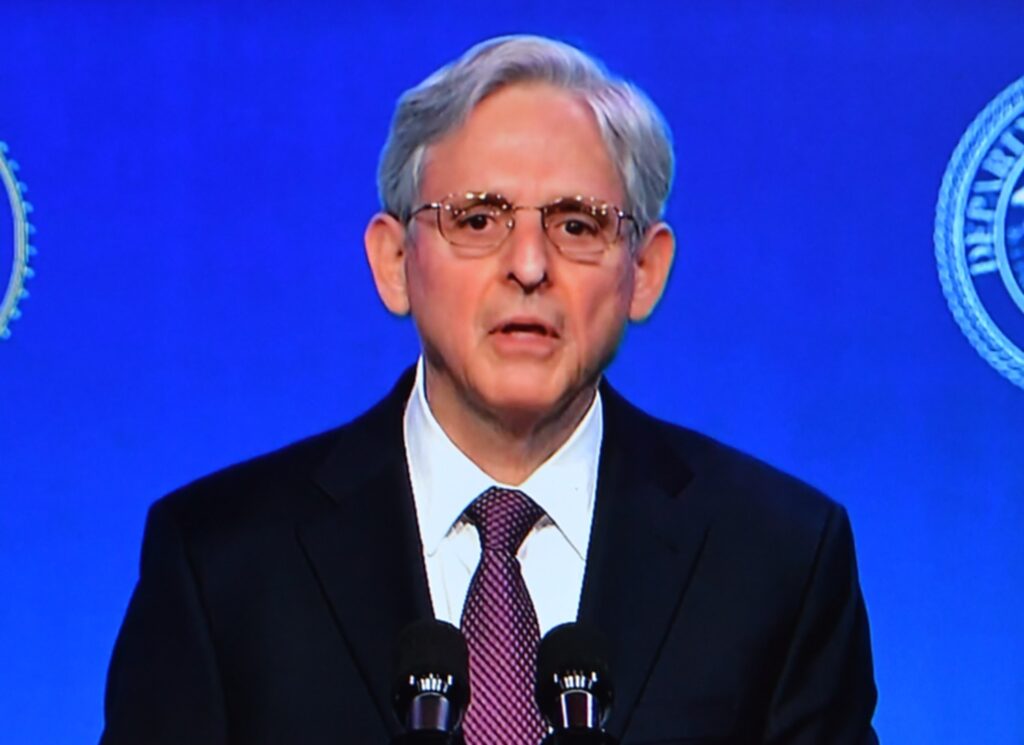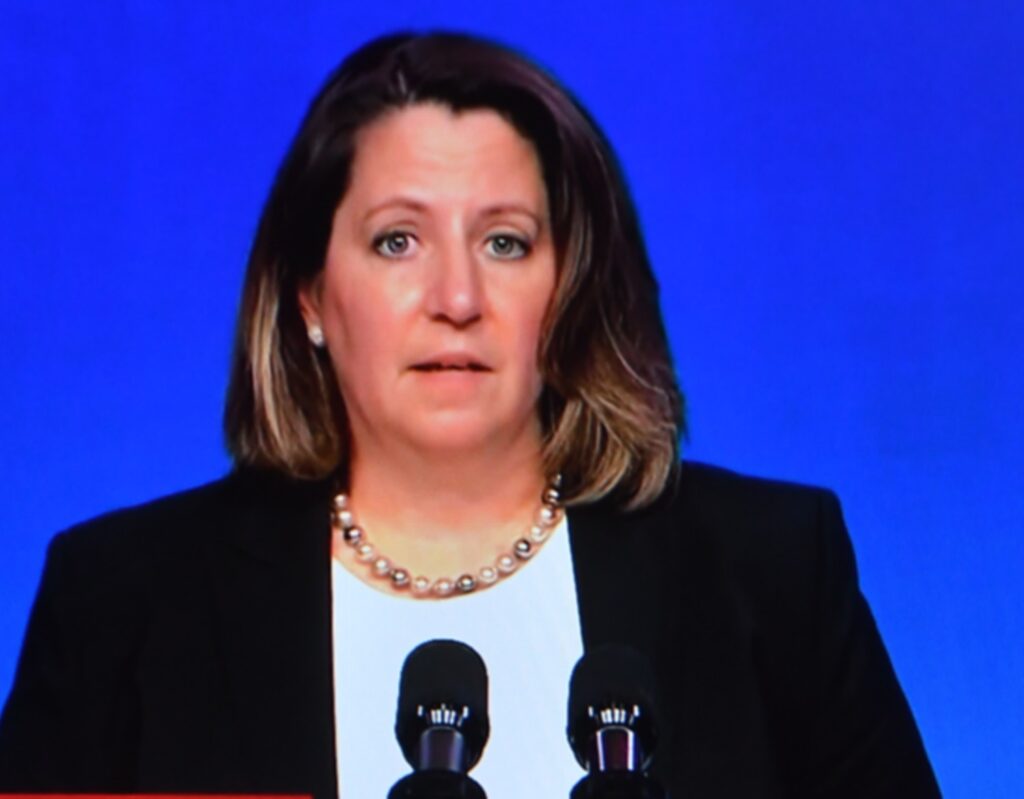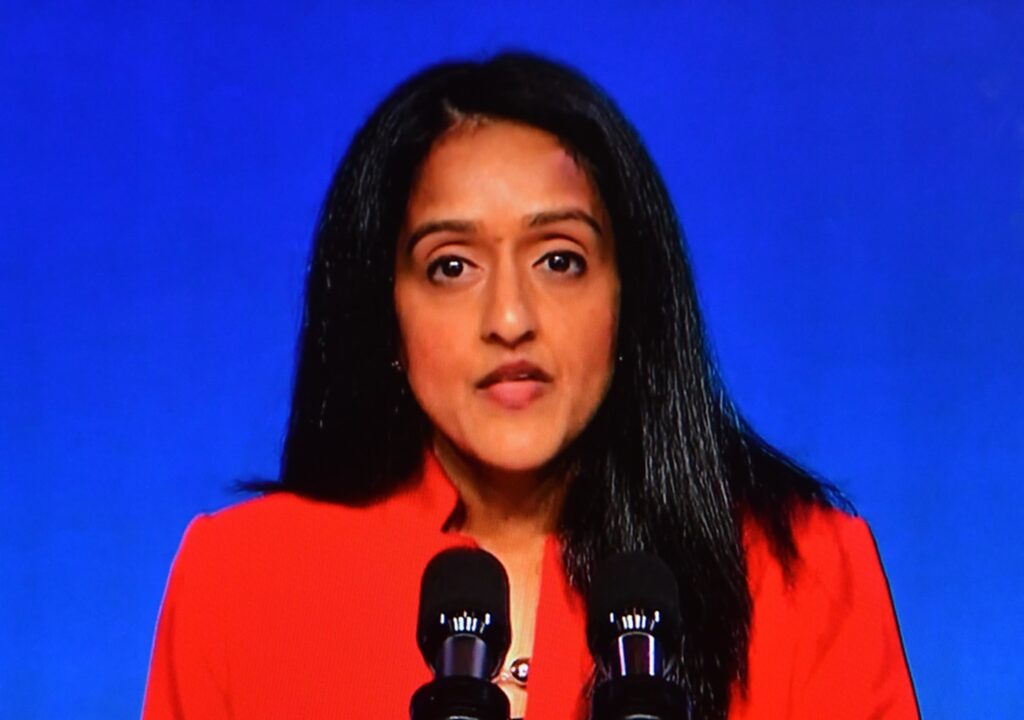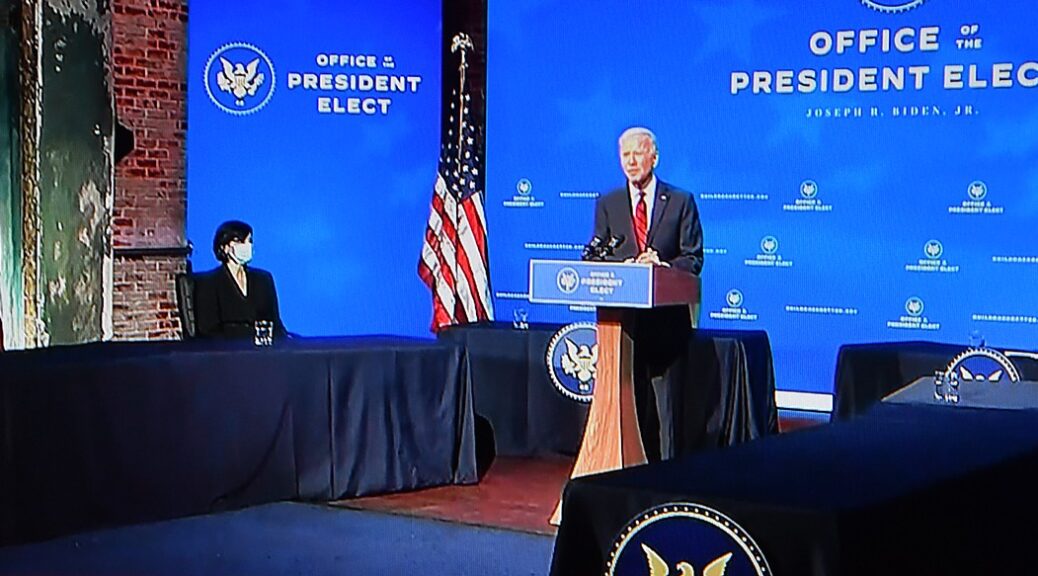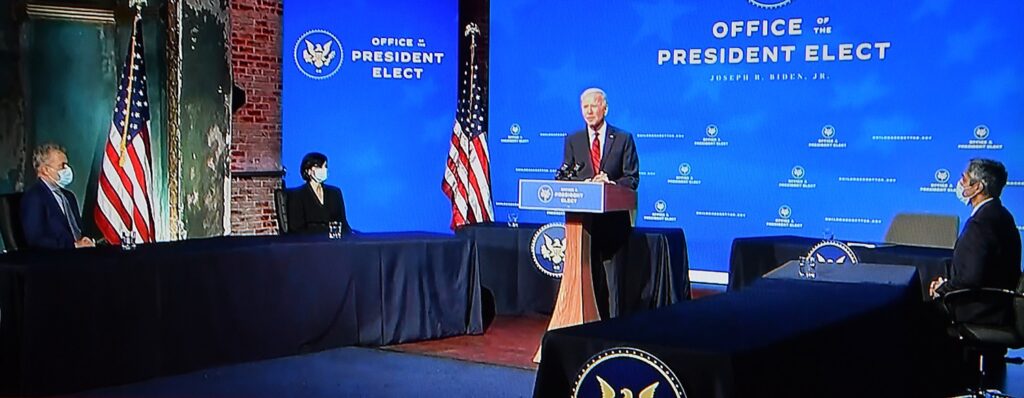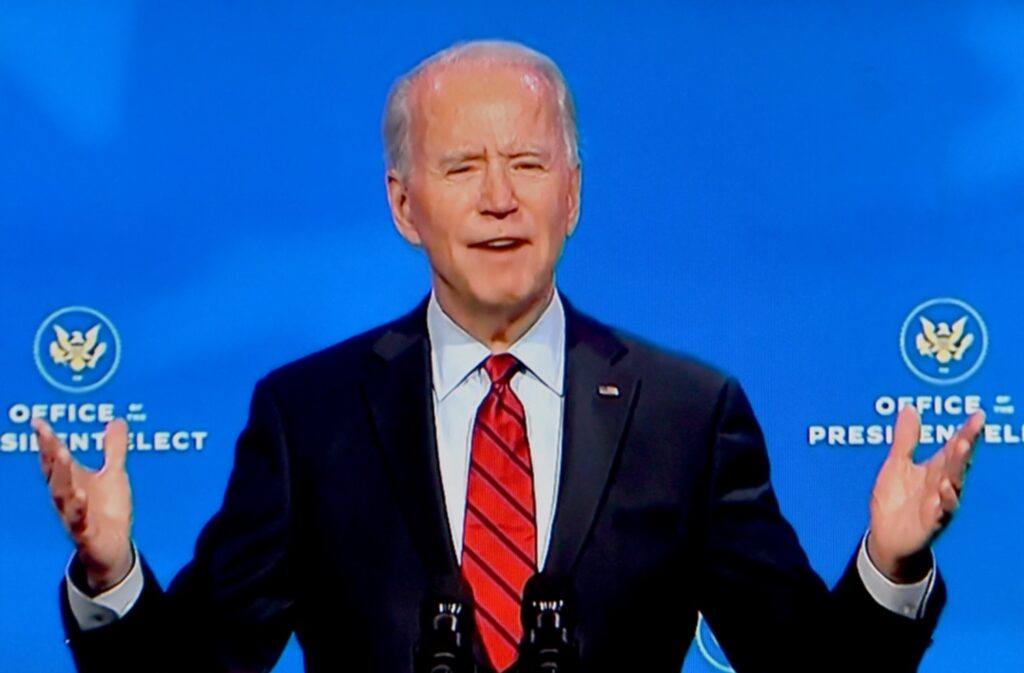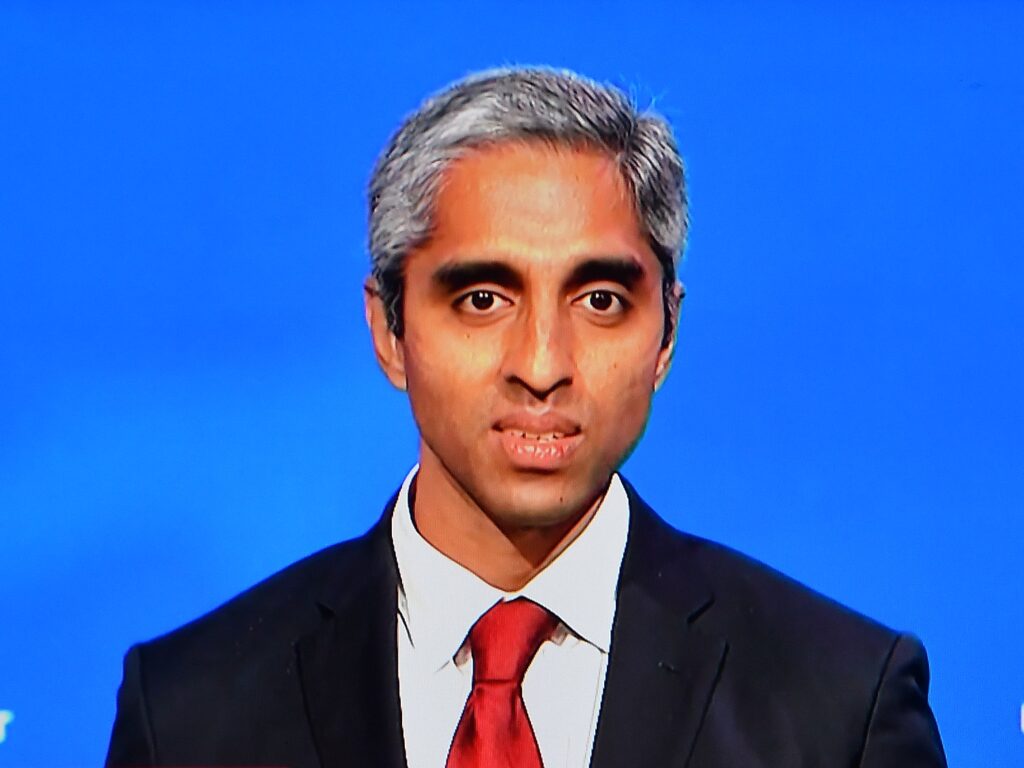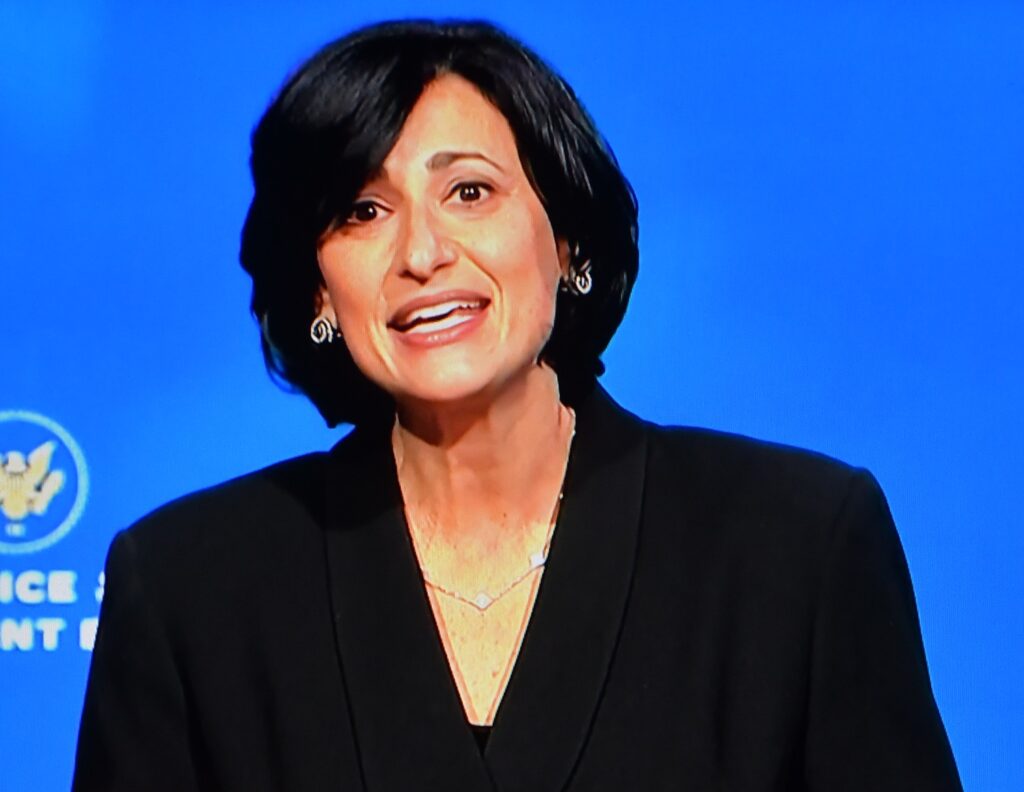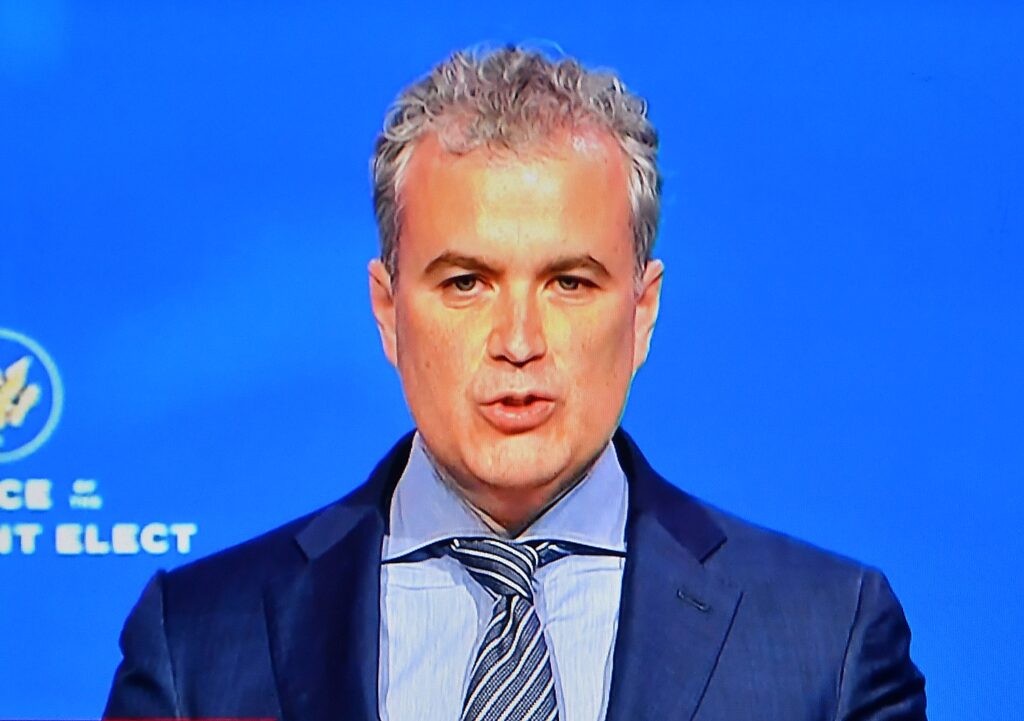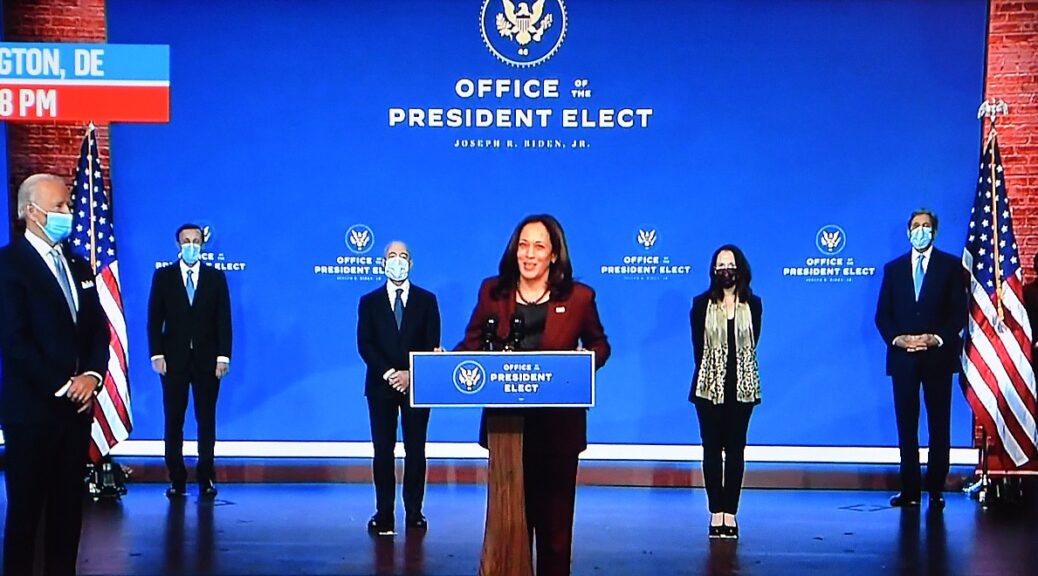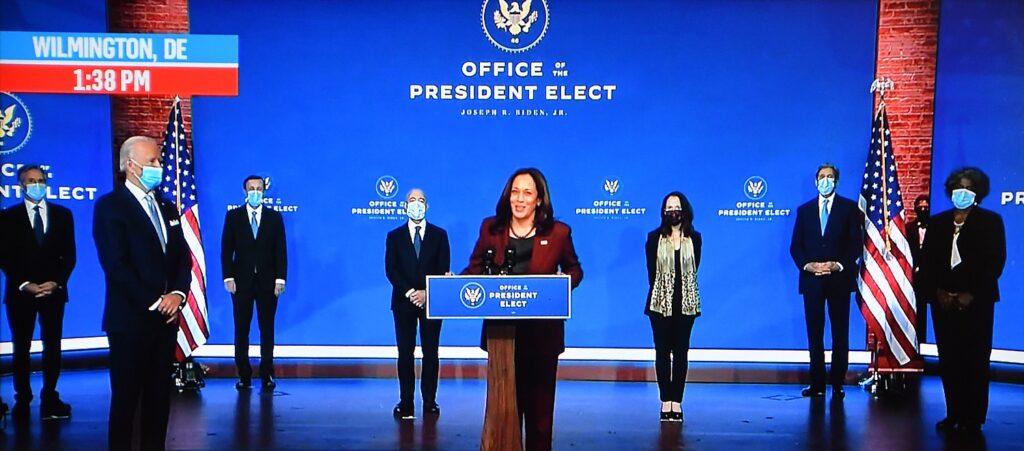President Joe Biden visited the US State Department to give his first major foreign policy speech in which he declared emphatically, “America is back.” He noted the importance – the obligation – of America to assert its global leadership, and said he would repair the alliances broken and weakened by the Trump Administration, along with reinforcing his respect and commitment to the people who serve in the diplomatic corps, often in dangerous and difficult circumstances.
He emphasized that diplomacy is not just because of the moral imperative, but also helps America and Americans prosper and live in peace.
And he said he would reassert American values in diplomacy: reinstating a refugee admissions program that would accommodate up to 125,000 in the first full fiscal year of his administration; would seek a ceasefire in Yemen and would send humanitarian aid; and would stand up for human rights.
He said he would assert American interests in Russia and China, and suggested there would be sanctions against the military leadership that fomented a coup in Myanmar. “In a democracy, force should never seek to overrule the will of the people or attempt to erase the outcome of a credible election,” he declared, in a statement that had eerie resonance in the United States.
“Investing in our diplomacy isn’t something we do just because it’s the right thing to do for the world. We do it in order to live in peace, security, and prosperity. We do it because it’s in our own naked self-interest. When we strengthen our alliances, we amplify our power as well as our ability to disrupt threats before they can reach our shores.
“When we invest in economic development of countries, we create new markets for our products and reduce the likelihood of instability, violence, and mass migrations.
“When we strengthen health systems in far regions of the world, we reduce the risk of future pandemics that can threaten our people and our economy.
“When we defend equal rights of people the world over — of women and girls, LGBTQ individuals, indigenous communities, and people with disabilities, the people of every ethnic background and religion — we also ensure that those rights are protected for our own children here in America.
“America cannot afford to be absent any longer on the world stage. I come today to the State Department, an agency as old and as storied as the nation itself, because diplomacy has always been essential to how America writes its own destiny.”
Here is a highlighted transcript of President Biden’s remarks:
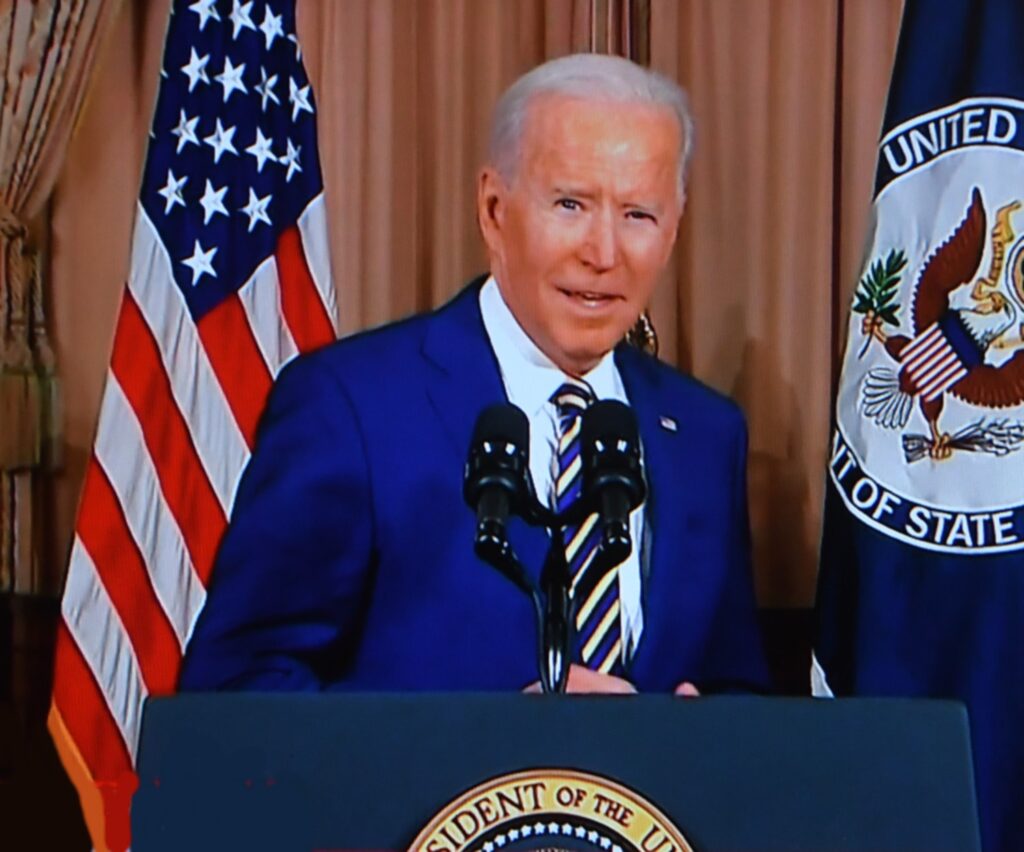
It’s great to be here and stand alongside our most recent and senior diplomat, Secretary Tony Blinken. Mr. Secretary, thank you for welcoming us today. We’ve worked together for over 20 years. Your diplomatic skills are respected equally by your friends and our competitors around the world.
And they know when you speak, you speak for me. And so — so is the message I want the world to hear today: America is back. America is back. Diplomacy is back at the center of our foreign policy.
As I said in my inaugural address, we will repair our alliances and engage with the world once again, not to meet yesterday’s challenges, but today’s and tomorrow’s. American leadership must meet this new moment of advancing authoritarianism, including the growing ambitions of China to rival the United States and the determination of Russia to damage and disrupt our democracy.
We must meet the new moment accelerating global challenges — from the pandemic to the climate crisis to nuclear proliferation — challenging the will only to be solved by nations working together and in common. We can’t do it alone.
That must be this — we must start with diplomacy rooted in America’s most cherished democratic values: defending freedom, championing opportunity, upholding universal rights, respecting the rule of law, and treating every person with dignity.
That’s the grounding wire of our global policy — our global power. That’s our inexhaustible source of strength. That’s America’s abiding advantage.
Though many of these values have come under intense pressure in recent years, even pushed to the brink in the last few weeks, the American people are going to emerge from this moment stronger, more determined, and better equipped to unite the world in fighting to defend democracy, because we have fought for it ourselves.
Over the past few days, we’ve been in close cooperation with our allies and partners to bring together the international community to address the military coup in Burma.
I’ve also been in touch with Leader McConnell to discuss our shared concerns about the situation in Burma, and we are united in our resolve.
There can be no doubt: In a democracy, force should never seek to overrule the will of the people or attempt to erase the outcome of a credible election.
The Burmese military should relinquish power they have seized, release the advocates and activists and officials they have detained, lift the restrictions on telecommunications, and refrain from violence.
As I said earlier this week, we will work with our partners to support restoration of democracy and the rule of law, and impose consequences on those responsible.
Over the past two weeks, I’ve spoken with the leaders of many of our closest friends — Canada, Mexico, the UK, Germany, France, NATO, Japan, South Korea, Australia — to being [begin] reforming the habits of cooperation and rebuilding the muscle of democratic alliances that have atrophied over the past few years of neglect and, I would argue, abuse.
America’s alliances are our greatest asset, and leading with diplomacy means standing shoulder-to-shoulder with our allies and key partners once again.
By leading with diplomacy, we must also mean engaging our adversaries and our competitors diplomatically, where it’s in our interest, and advance the security of the American people.
That’s why, yesterday, the United States and Russia agreed to extend the New START Treaty for five years to preserve the only remaining treaty between our countries safeguarding nuclear stability.
At the same time, I made it clear to President Putin, in a manner very different from my predecessor, that the days of the United States rolling over in the face of Russia’s aggressive actions — interfering with our elections, cyberattacks, poisoning its citizens — are over. We will not hesitate to raise the cost on Russia and defend our vital interests and our people. And we will be more effective in dealing with Russia when we work in coalition and coordination with other like-minded partners.
The politically motivated jailing of Alexei Navalny and the Russian efforts to suppress freedom of expression and peaceful assembly are a matter of deep concern to us and the international community.
Mr. Navalny, like all Russian citizens, is entitled to his rights under the Russian constitution. He’s been targeted — targeted for exposing corruption. He should be released immediately and without condition.
And we’ll also take on directly the challenges posed by our prosperity, security, and democratic values by our most serious competitor, China.
We’ll confront China’s economic abuses; counter its aggressive, coercive action; to push back on China’s attack on human rights, intellectual property, and global governance.
But we are ready to work with Beijing when it’s in America’s interest to do so. We will compete from a position of strength by building back better at home, working with our allies and partners, renewing our role in international institutions, and reclaiming our credibility and moral authority, much of which has been lost.
That’s why we’ve moved quickly to begin restoring American engagement internationally and earn back our leadership position, to catalyze global action on shared challenges.
On day one, I signed the paperwork to rejoin the Paris Climate Agreement. We’re taking steps led by the example of integrating climate objectives across all of our diplomacy and raise the ambition of our climate targets. That way, we can challenge other nations, other major emitters, to up the ante on their own commitments. I’ll be hosting climate leaders — a climate leaders’ summit to address the climate crisis on Earth Day of this year.
America must lead in the face of this existential threat. And just as with the pandemic, it requires global cooperation.
We’ve also reengaged with the World Health Organization. That way, we can build better global preparedness to counter COVID-19, as well as detect and prevent future pandemics, because there will be more.
We’ve elevated the status of cyber issues within our government, including appointing the first national — Deputy National Security Advisor for Cyber and Emerging Technology. We’re launching an urgent initiative to improve our capability, readiness, and resilience in cyberspace.
Today, I’m announcing additional steps to course-correct our foreign policy and better unite our democratic values with our diplomatic leadership.
To begin, Defense Secretary Austin will be leading a Global Posture Review of our forces so that our military footprint is appropriately aligned with our foreign policy and national security priorities. It will be coordinated across all elements of our national security, with Secretary Austin and Secretary Blinken working in close cooperation.
And while this review is taking place, we’ll be stopping any planned troop withdrawals from Germany. We’re also stepping up our diplomacy to end the war in Yemen — a war which has created a humanitarian and strategic catastrophe. I’ve asked my Middle East team to ensure our support for the United Nations-led initiative to impose a ceasefire, open humanitarian channels, and restore long-dormant peace talks.
This morning, Secretary Blinken appointed Tim Lenderking, a career foreign policy officer, as our special envoy to the Yemen conflict. And I appreciate his doing this. Tim is a life — has lifelong experience in the region, and he’ll work with the U.N. envoy and all parties of the conflict to push for a diplomatic resolution.
And Tim’s diplomacy will be bolstered by USAID, working to ensure that humanitarian aid is reaching the Yemeni people who are sufferinguunendurable devastation. This war has to end.
And to underscore our commitment, we are ending all American support for offensive operations in the war in Yemen, including relevant arms sales.
At the same time, Saudi Arabia faces missile attacks, UAV strikes, and other threats from Iranian-supplied forces in multiple countries. We’re going to continue to support and help Saudi Arabia defend its sovereignty and its territorial integrity and its people.
We also face a crisis of more than 80 million displaced people suffering all around the world. The United States’ moral leadership on refugee issues was a point of bipartisan consensus for so many decades when I first got here. We shined the light of lamp on — of liberty on oppressed people. We offered safe havens for those fleeing violence or persecution. And our example pushed other nations to open wide their doors as well.
So today, I’m approving an executive order to begin the hard work of restoring our refugee admissions program to help meet the unprecedented global need. It’s going to take time to rebuild what has been so badly damaged, but that’s precisely what we’re going to do.
This executive order will position us to be able to raise the refugee admissions back up to 125,000 persons for the first full fiscal year of the Biden-Harris administration. And I’m directing the State Department to consult with Congress about making a down payment on that commitment as soon as possible.
And to further repair our moral leadership, I’m also issuing a presidential memo to agencies to reinvigorate our leadership on the LGBTQI issues and do it internationally. You know, we’ll ensure diplomacy and foreign assistance are working to promote the rights of those individuals, included by combatting criminalization and protecting LGBTQ refugees and asylum-seekers.
And finally, to successfully reassert our diplomacy and keep Americans safe, prosperous, and free, we must restore the health and morale of our foreign policy institutions.
I want the people who work in this building and our embassies and consulates around the world to know: I value your expertise and I respect you, and I will have your back. This administration is going to empower you to do your jobs, not target or politicize you. We want a rigorous debate that brings all perspectives and makes room for dissent. That’s how we’ll get the best possible policy outcomes.
So, with your help, the United States will again lead not just by the example of our power but the power of our example.
That’s why my administration has already taken the important step to live our domestic values at home — our democratic values at home.
Within hours of taking office, I signed an executive order overturning the hateful, discriminatory Muslim ban; reversed the ban on transgender individuals serving in our military.
And as part of our commitment to truth, transparency, and accountability, we stated on day one — we started on day one with daily briefings of the press from the White House. We’ve reinstituted regular briefings here at State and at the Pentagon. We believe a free press isn’t an adversary; rather, it’s essential to the health of a democracy.
We’ve restored our commitment to science and to create policies grounded in facts and evidence. I suspect Ben Franklin would approve.
We’ve taken steps to acknowledge and address systemic racism and the scourge of white supremacy in our own country. Racial equity will not just be an issue for one department in our administration, it has to be the business of the whole of government in all our federal policies and institutions.
All this matters to foreign policy, because when we host the Summit of Democracy early in my administration to rally the nations of the world to defend democracy globally, to push back the authoritarianism’s advance, we’ll be a much more credible partner because of these efforts to shore up our own foundations.
There’s no longer a bright line between foreign and domestic policy. Every action we take in our conduct abroad, we must take with American working families in mind. Advancing a foreign policy for the middle class demands urgent focus on our domestic economic renewal.
And that’s why I immediately put forth the American Rescue Plan to pull us out of this economic crisis. That’s why I signed an executive order strengthening our Buy American policies last week. And it’s also why I’ll work with Congress to make far-reaching investments in research and development of transformable technologies.
These investments are going to create jobs, maintain America’s competitive edge globally, and ensure all Americans share in the dividends.
If we invest in ourselves and our people, if we fight to ensure that American businesses are positioned to compete and win on the global stage, if the rules of international trade aren’t stacked against us, if our workers and intellectual property are protected, then there’s no country on Earth — not China or any other country on Earth — that can match us.
Investing in our diplomacy isn’t something we do just because it’s the right thing to do for the world. We do it in order to live in peace, security, and prosperity. We do it because it’s in our own naked self-interest. When we strengthen our alliances, we amplify our power as well as our ability to disrupt threats before they can reach our shores.
When we invest in economic development of countries, we create new markets for our products and reduce the likelihood of instability, violence, and mass migrations.
When we strengthen health systems in far regions of the world, we reduce the risk of future pandemics that can threaten our people and our economy.
When we defend equal rights of people the world over — of women and girls, LGBTQ individuals, indigenous communities, and people with disabilities, the people of every ethnic background and religion — we also ensure that those rights are protected for our own children here in America.
America cannot afford to be absent any longer on the world stage. I come today to the State Department, an agency as old and as storied as the nation itself, because diplomacy has always been essential to how American — America writes its own destiny.
For the diplomacy of Ben Franklin helped assure the success of our revolution. The vision of the Marshall Plan helped prevent the world from foundering on the wreckage of war. And the passions of Eleanor Roosevelt declared the audacious idea of universal rights that belong to all.
The leadership of diplomats of every stripe, doing the daily work of engagement, created the very idea of a free and interconnected world. We are a country that does big things. American diplomacy makes it happen. And our administration is ready to take up the mantle and lead once again.
Thank you all. And may God bless you and protect our troops, our diplomats, and our development experts, and all Americans serving in harm’s way.

